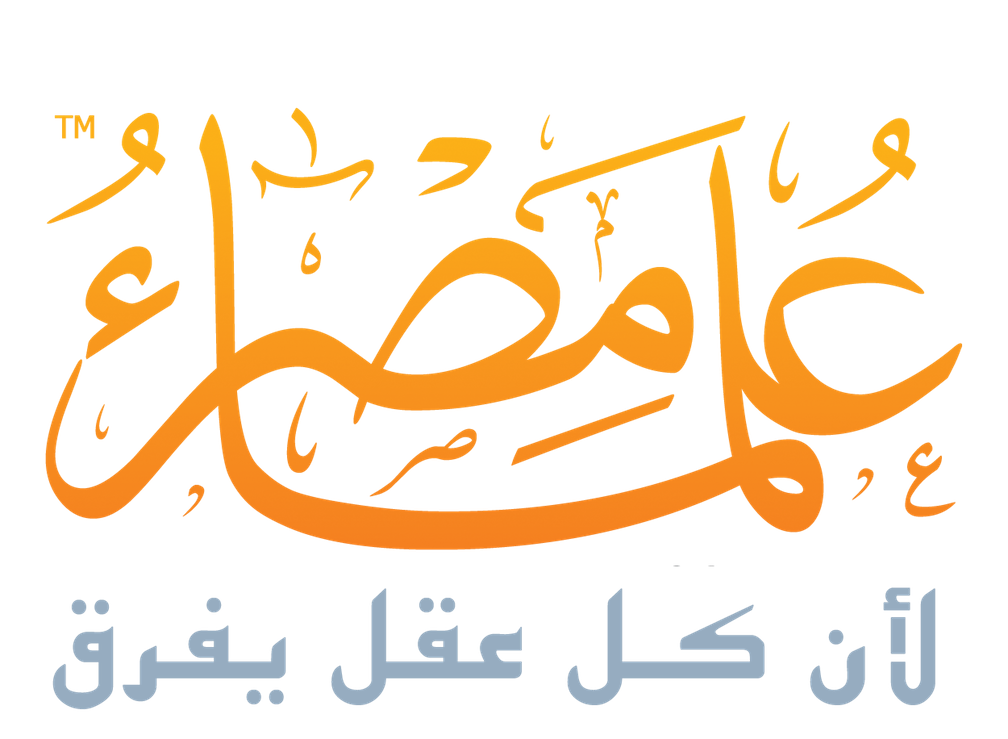يتم يومياً نشر العديد من الأوراق البحثية العلمية في مجلات و جرائد علمية دولية يقدمها باحثون من مختلف الجهات البحثية الرسمية حول العالم ، لكن ما يميز هذه الورقة البحثية هو كونها نتاج أحد مبادرات مؤسستنا الغير ربحية و التي تهدف للتوعية بأهمية البحث العلمي و تقديم كل عون...

studying in Scandinavia
studying in Scandinavia
Study in Scandinavia – and create an excellent platform for your future career.
Scandinavian countries top the United Nations Education Index and Scandinavian qualifications are recognized throughout the world. Gaining one will help propel you on to a successful career.
Scandinavian higher education institutions have a lot to offer international students. Whether you are coming to Scandinavia as part of your study programme at your home institution (as an exchange student) or to study for a full degree programme, Scandinavian highly international institutions offer a range of excellent study opportunities. The educational system in Scandinavia is well known for its unique teaching approach. The institutions offer a dynamic study environment, emphasizing independent study, initiative and project-oriented learning. As a student at a Scandinavian higher education institution you are encouraged to play an active role in your learning process and take responsibility for planning and carrying out your projects, either independently or together with other students. In addition to attending lectures, you will be expected to participate in discussion and continuously develop your critical thinking and analytical skills.
For international students, the Scandinavian approach to teaching and learning can introduce a whole new way of studying and thinking, which will challenge you and provide you with an excellent platform for your future career.
All Scandinavian higher education institutions have establish co-operation with business, industry as well as research and development institutes, which provide students with an opportunities to apply their theoretical knowledge and gain practical experience.
Scandinavia offers you a unique student experience and Scandinavian institutions of higher education welcome applications sent by qualified students from all over the world.
A Scandinavian education provides you with:
• Strong analytical and communicative skills
• The ability to work independently and in groups
• An international profile
• A good foundation for your future career
Living in Scandinavia and Social Security
Quality of life is a characteristic feature of the Scandinavian societies combining social security, a clean environment and an attractive business climate with high standards in education and research – also in an international perspective.
The Scandinavian countries are today modern welfare societies and have virtually abolished social classes and the differences between rich and poor are small. The principle behind the Scandinavian welfare society, known as “the Scandinavian welfare model”, is that all citizens have access to social benefits. Norway, Denmark and Sweden have open economies and trade with the rest of the world is of great importance. They are modern, knowledge-based societies with an increasing postindustrial service economy.
Most Swedes, Danes, and Norwegians speak English fluently as their second language, and you will find easy access to international television channels, foreign newspapers etc. Thanks to the Scandinavian international outlooks, visitors find it easy to live and study in Scandinavia.
The Scandinavian countries are known as countries with a high personal safety – even the King or Queen can go shopping with a minimum of security personnel. Scandinavians are generally informal, helpful and tolerant. They value individual freedom, equality and their social life. They have a love for small cafés, pubs, and social gatherings, which form an important part of their culture.
In this northern corner of the world you can combine your studies with exciting outdoor activities, both winter and summer. You can see the “Northern lights”, experience the midnight sun, fjords and mountains. Challenge yourself with skiing, white water rafting or climbing. Or simply enjoy the fresh air, clean water and lots and lots of space.
Working in Scandinavia
The work culture in Scandinavia is characterized by a non-hierarchical structure and open dialogue between management and employees. It is team-oriented, and the working environment is open and informal. Scandinavian companies offer flexible working conditions and modern facilities. The enhancement of qualifications is a high priority and most workplaces offer continuing education to their employees. Almost all Scandinavians speak fluent English. Many companies use English as their official working language.
Introductory programmes for international students
As a service to international students, many Scandinavians institutions have establish a “buddy-programme” aimed at helping international students to get settled more easily. On arrival, a “buddy” (a current student) will help the students to get settled, meet other students and assist them with practical matters in their first weeks at the institution.
The welcome programmes, the native courses and culture provide international students with another opportunity to familiarize themselves with host country and meet other international and native students.
Campus Life and Social Life
Most institutions have several committees or societies that organize activities, such as excursions, student politics, parties and cafes. There are numerous ways of socializing as a student in Scandinavia. Most studies involve teamwork and in many cases these groups facilitate the close contact between students. The groups are formed by students with the same interests or taking the same exams, or by students who simply enjoy working together and supporting each other in their studies. Group work therefore gives you an excellent opportunity to get to know native students. The Scandinavian campus-based institutions are not many, so the campus environment that you may know from your home country or other countries does not exist to the same extent in Scandinavia. However, this does not mean that there is a lack of social life or facilities at the higher education institutions.
On the other hand many of the cities in the Scandinavian countries will provide the best of city-life. There is a vast difference between nature in northern Norway and Sweden and the nature in Denmark. As a student in Scandinavia you will never be short of possibilities for unique nature experiences.
The buildings at most Scandinavian Institutions of higher education are modern and hold excellent up-to-date facilities such as libraries, lecture-, class- and study rooms, labs, IT, canteens etc. Computers are available at the libraries, in computer rooms and, at some institutions, even in the corridors – all students have free access to these facilities. The libraries are public, thus, all students can borrow books, tapes, language learning materials and the like for free.
Major cities have a students house with cultural activities. The social life at most institutions is vibrant and varied. An active social life is an essential part of student life and a great way to meet other native and international students. Where you choose to study will obviously depend on you personal preference. However Scandinavians tend to be active and sporting activities are popular among students. Sporting clubs and societies organise a wide range of activities on campus at most universities and university colleges. Taking part in these activities is probably the best way to meet new people and taking a break from studying.
Universities and University Colleges in Scandinavia
Universities are government institutions, whilst university colleges are run and funded in a variety of ways: some publicly, as governmental institutions, others privately. Some private institutions receive government grants, while others do not; some have examination rights, others do not.
Universities and university colleges offer courses within a wide range of specialist areas. The basic grade is a Bachelors Degree, which can be achieved after three years of study. A Masters Degree would provide further specialisation over a two-year study period. Unlike the American system, you mast have a Master degree to apply for a PhD scholarship. It is important that you make thorough investigations about the institution to which you wish to apply. Use the university website – and ask questions!
Quality Education
Scandinavian higher education has a long academic tradition that combines excellence with a dynamic and innovative culture in research as well as in teaching methods and learning environments. High academic standards, active study environments, interdisciplinary studies and project-based activities are some of the characteristics of studying in Scandinavia. Apart from attending lectures, students work together in small groups and are encouraged to contribute actively to discussions. The student’s own critical and analytical initiative is an important element of higher education in Scandinavia. The ability to communicate with others is another important element. This is not only reflected in the Scandinavian way of teaching, but also in the way the students are evaluated throughout the educational system, where both written and oral examinations are obligatory. The fact that education is not only given as lessons to the students, but also requires project work at times, make relations between the students stronger – and the teacher and student relations less formal.
When studying in Scandinavia you are also studying in a region that has fully implemented many of the principles of the Bologna process. This includes a 3+2+3 degree system, diploma supplements and the ECTS (European Credit Transfer and Accumulation System). So when you have finished a degree or course(s) at a Scandinavian institution, you hold papers that are transferable to many other countries.
Admission Requirements
Each institution is responsible for its own admissions. Requirements vary from programme to programme. The institution in Scandinavia will require certified copies of your educational qualifications (in English). That is, you must provide copies with original stamps and signatures, or have two people who are not related to you, sign the back of the copy with their name, address and birth date. Some institutions require that they receive the documents directly from the issuing institution. This can often take several months, so be sure to arrange in time.
All higher education programmes in Scandinavia require a high standard of English for regular admission to English-taught undergraduate and postgraduate programmes. To prove a satisfactory proficiency in English, the language tests TOEFL, IELTS and Cambridge ESOL examinations (CAE) are often used.
Recommendation letters or references as well as motivation letter are basically required. Sometimes, cover letter and/or research plan are also required.
Tuition Fees & Scholarships
Tuition fees:
All other students must pay tuition fees. Annual tuition fees for full-time degree students range from (≈ USD 8,000-21,000 / Euro 6,000 to 16,000). Please check with the institution of your interest. However, scholarships and grants are available from the higher education institutions and from public funded schemes. Higher education in Scandinavia is free for students from the EU/EEA and Switzerland. Similarly, if you are participating in an exchange programme your studies in Scandinavia are free.
Application fee:
Students from outside EU/EEA or Switzerland will be charged a fee when applying for a residence permit (visa) to study in Scandinavia.
Scholarships:
“Nothing is for free” is a saying that is true in many cases. But in Scandinavia it is possible to get quality education without having to pay tuition fees. If certain prerequisites are met you could also be eligible for financial support that can pay for your living expenses. Through various fellowship programmes, scholarship schemes or student loans, international students can receive funding for a full degree or a limited number of semesters. The number of available scholarships varies from year to year, and competition is keen. Most foreign students in Scandinavia finance their stay without help from scholarships.
Most students come to Scandinavia via an exchange agreement between two institutions, an official exchange programme such as Socrates/Erasmus or a governmental bilateral agreement. The EU’s Erasmus Mundus project also makes Europe’s educational opportunities more accessible to the rest of the world by granting scholarships to non-European students attending select programmes. With a wide range of high quality courses and great flexibility, Scandinavian institutions prove to be an ideal study destination. From vocational subjects to postgraduate and doctorate level, there are plenty of opportunities for students to fulfill their ambitions.

Egypt Scholars Team
Every mind makes a difference
More Posts
Papers published through Labs Program
From idea to science start-up
نظرة عامة عن الطب الناتوي الموجه وعلاج مرض السرطان
الدراسة في ألمانيا
تكرس ألمانيا منذ قرون اهتماماً بالغًا بالعلم والثقافة والمعرفة؛ فمفكروها وفلاسفتها وموسيقيوها أغنوا المكتبات العالمية. وتتميز ألمانيا بجامعاتها ومعاهدها التي تنتهج أحدث ما توصل إليه العلم لتطبيق مناهج دراسية متطورة قادرة على بناء أجيال من المتعلمين والمجهزين بأحدث ما توصل إليه العلم البشري لتعليمه وتطويره وتعتبر الدراسة في ألمانيا شبه مجانية للطالب المحلي والأجنبي على السواء . تعرف على هذا وأكثر من خلال الفيديو المرفق في المقال
هل تمثل منح الدراسة في بعض الجامعات العربية فرصة تعليم حقيقية ؟!
في السنوات الأخيرة انتشرت فرص الحصول على منح دراسية وكثير من المميزات الإضافية من بعض الجامعات في الدول العربية، ولنكن أكثر تحديدًا فھي جامعات دول الخليج العربي المختلفة وبشكل خاص جامعات المملكة العربية السعودية. وللإجابة عن ھذا السؤال يجب أن نضع نصب أعيننا سؤال آخر...
مصادر ومبادرات معرفية وعلمية متاحة باللغة العربية
أصبح التعلم من على الإنترنت وسيلة هامة في وقتنا الحالي. لكن هل توجد مبادرات ومؤسسات معنية بذلك وتنطق باللغة العربية؟ بالتأكيد .. ليس هذا فقط بل إن تلك المبادرات متنوعة في ما تقوم بها من أنشطة .. بعضها يركز على الدورات والكورسات والبعض الآخر يركز على الترجمة ونشر...
One Young World’s Entrepreneur of the Year Award 2019 for young Entrepreneurs | Opportunities For Africans
Application Deadline: 19 May 2019 6pm BST One Young World’s Entrepreneur of the Year Award has been created to identify and promote 5 of the world’s most revolutionary entrepreneurs under 35 who are having a positive global impact and inspiring others with...







